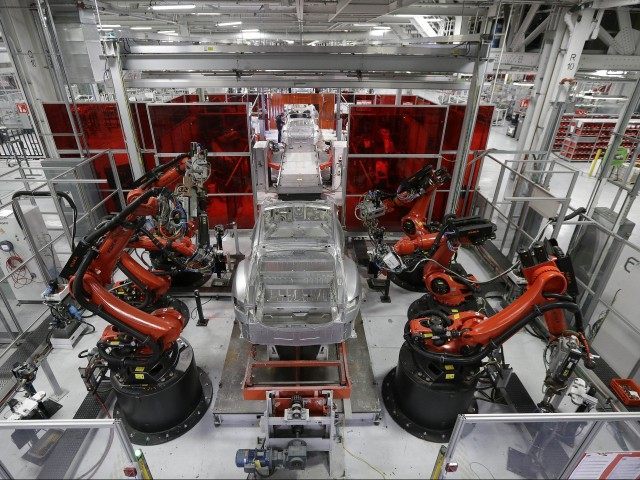Oxford University researchers postulate roughly half of all American jobs are at risk of automation, and people are starting to believe it: the same study claims that two-thirds of American adults expect automated replacement of a majority of work currently executed by humans within the next fifty years.
The data, compiled by Pew Research Center using a national survey of over 2,000 adults last summer, shows that 65% of Americans now believe that robots and computers will replace much of the work currently done by humans within the next 50 years. However, as usual, no one expects it to happen to them: 80% of the people surveyed believe that their own occupation will not be affected.
Expectations are largely similar regardless of age, household income, employment type, and level of education attained. There is slightly more skepticism of robotic replacement among Americans with relatively high household incomes, as well as those under 50 years of age, those with college education, and those working within non-profit, government, or education professions. Four out of ten manual labor workers are completely confident that their jobs will remain unchanged.
And even though the vast majority predict an increase of technological and robotic replacement in the workforce, few view that workforce automation as an imminent threat. A more immediate concern for many — and moreso for those whose jobs involve primarily manual or physical labor — is the possibility of losing their job to poor company management, shrinking industry, and competing lower-paid humans.
In 2013, Oxford University researchers posited that 47% of jobs in the workplace, both manual and cognitive, are at risk of automation within roughly the next decade or two. Analysts from Nomura Research Institute more recently determined that half of Japan’s workforce alone would be replaced by artificial intelligence by 2025. Singapore’s Nanyang Technological University is developing humanoid robot caretakers.
There’s even a “City of Robots” in development, complete with robotic-assisted medical care, industrial and agricultural functions. With such rapid advancement in artificial intelligence, it’s easy to see why a majority of Americans expect robotics to make humans redundant in time.
Regardless of the majority who remain blithely confident that they will not be rendered obsolete by their artificial rivals, the facts presented tell a cautionary tale that all working citizens would do well to hear.
Follow Nate Church @Get2Church on Twitter for the latest news in gaming and technology, and snarky opinions on both.

COMMENTS
Please let us know if you're having issues with commenting.